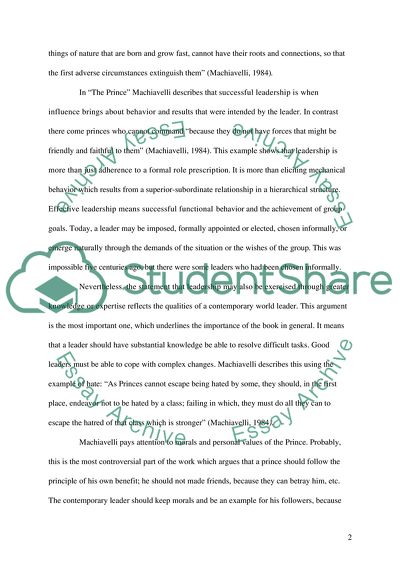Cite this document
(“Machiavelli's The Prince and Leadership Essay Example | Topics and Well Written Essays - 1250 words”, n.d.)
Retrieved from https://studentshare.org/literature/1530964-machiavellis-the-prince-and-leadership
Retrieved from https://studentshare.org/literature/1530964-machiavellis-the-prince-and-leadership
(Machiavelli'S The Prince and Leadership Essay Example | Topics and Well Written Essays - 1250 Words)
https://studentshare.org/literature/1530964-machiavellis-the-prince-and-leadership.
https://studentshare.org/literature/1530964-machiavellis-the-prince-and-leadership.
“Machiavelli'S The Prince and Leadership Essay Example | Topics and Well Written Essays - 1250 Words”, n.d. https://studentshare.org/literature/1530964-machiavellis-the-prince-and-leadership.


